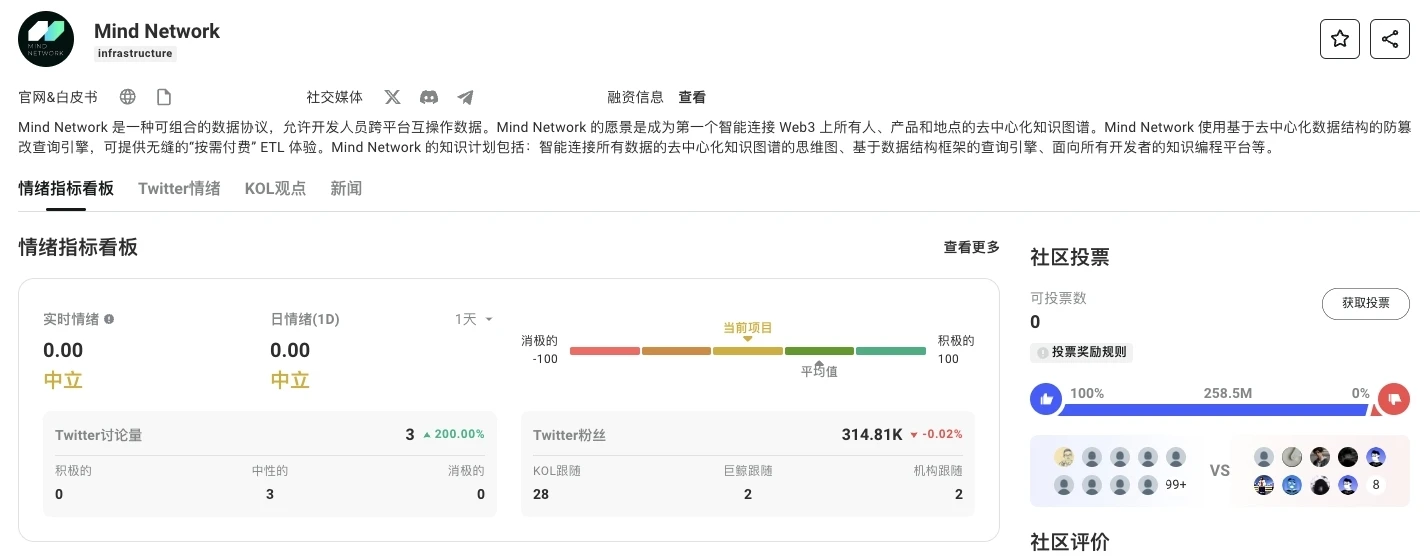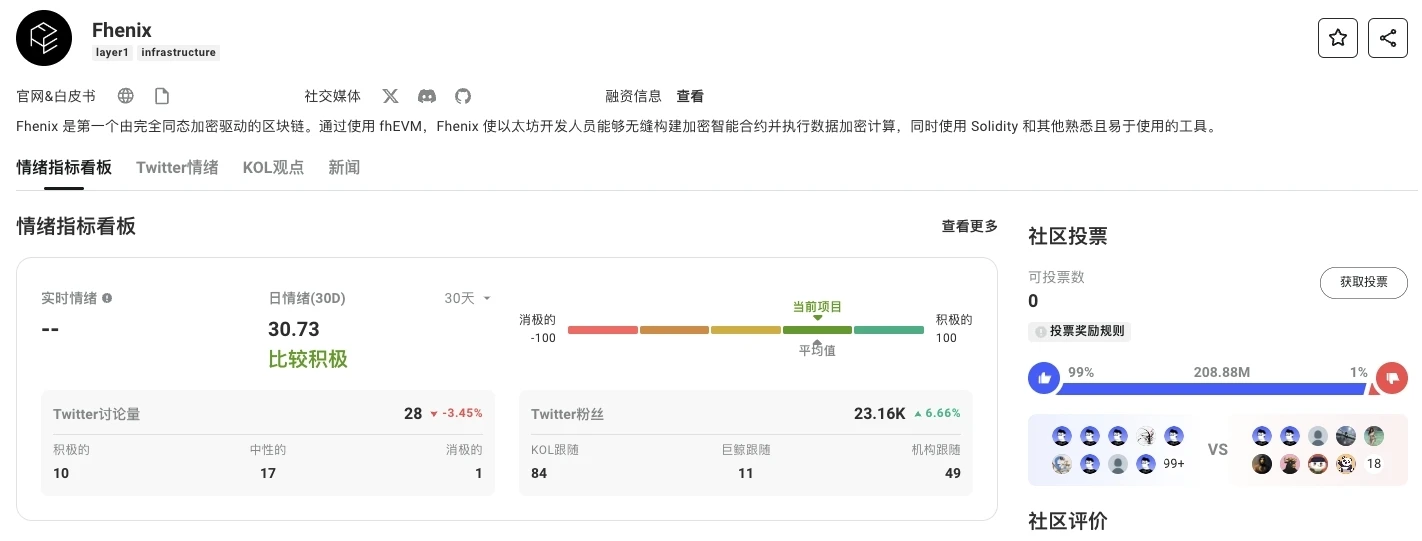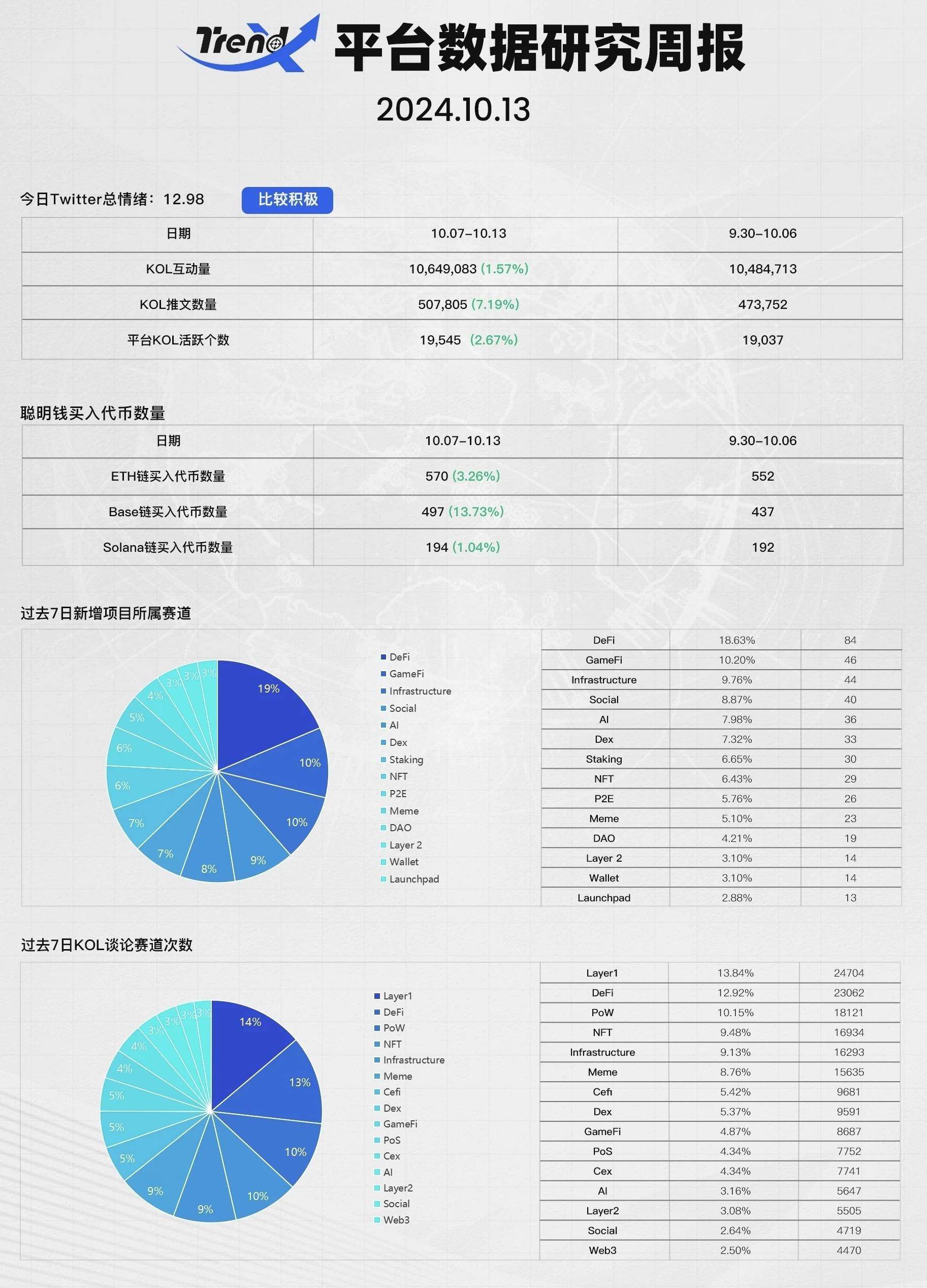As of October 13, the statistics of BTC, ETH, and TON on the TrendX platform are as follows:
The number of BTC discussions last week was 12.52K, down 0.98% from the previous week. The price on Sunday last week was $63,916, up 1.62% from the previous Sunday.
ETH had 3.63K discussions last week, up 3.45% from the previous week. The price on Sunday last week was $2,530, down 4% from the previous Sunday.
TON had 782 discussions last week, down 12.63% from the previous week. The price on Sunday last week was $5.26, down 0.25% from the previous Sunday.
Fully Homomorphic Encryption (FHE) is a technology with great potential in current cryptography. Its core feature is that it allows calculations to be performed directly on encrypted data without decryption, which provides strong support for privacy protection and data processing. FHE can be widely used in finance, medicine, cloud computing, machine learning, voting systems, the Internet of Things, and blockchain privacy protection. However, despite the broad application prospects of FHE, it still faces challenges on the road to commercialization.
FHE鈥檚 potential and application scenarios
The biggest advantage of homomorphic encryption is privacy protection. Imagine that company A needs to use the computing power of company B to analyze its data, but does not want company B to have access to the specific content of the data. FHE can play a role in this scenario: company A can encrypt the data and transmit it to company B for calculation. The calculation results remain encrypted, and company A can obtain the analysis results after decryption. In this way, data privacy is effectively protected, and company B can also complete the required calculation work.
This privacy protection mechanism is particularly important for data-sensitive industries such as finance and healthcare. In addition, with the development of cloud computing and artificial intelligence, data security has become an increasing focus of attention. FHE can provide multi-party computing protection in these scenarios, allowing all parties to collaborate without exposing private information. In particular, in blockchain technology, FHE improves the transparency and security of data processing through functions such as on-chain privacy protection and private transaction review.
Comparison of FHE and other encryption methods
In the Web3 space, FHE, zero-knowledge proof (ZK), multi-party computation (MPC), and trusted execution environment (TEE) are the main privacy protection methods. Unlike ZK, FHE can perform a variety of operations on encrypted data without decrypting the data first. MPC allows parties to perform calculations with encrypted data without sharing private information with each other. TEE provides computing in a secure environment, but the flexibility of data processing is relatively limited.

Each of these cryptographic techniques has its own advantages, but FHE is particularly good at supporting complex computing tasks. Despite this, FHE still faces the problems of high computational overhead and poor scalability in practical applications, which often makes it difficult to use in real-time applications. Limitations and Challenges of FHE Although FHE has a strong theoretical foundation, it has encountered practical challenges in commercial applications.
-
Large-scale computational overhead: FHE requires a lot of computing resources, and its computational overhead is significantly increased compared to unencrypted computing. For high-order polynomial operations, the processing time grows polynomially, so FHE is difficult to meet the needs of real-time computing. In order to reduce costs, FHE needs to rely on dedicated hardware acceleration, but this also increases deployment complexity.
-
Limited operational capabilities: Although FHE can perform addition and multiplication of encrypted data, it has limited support for complex nonlinear operations, which is a bottleneck for artificial intelligence applications involving deep neural networks. The current FHE scheme is still mainly applicable to linear and simple polynomial calculations, and the application of nonlinear models is significantly limited.
-
Complexity of multi-user support: FHE performs well in single-user scenarios, but when it comes to multi-user datasets, the system complexity rises sharply. In 2013, Lopez-Alt et al. proposed a multi-key FHE framework, which allows encrypted datasets with different keys to operate, but its key management and system architecture complexity are significantly increased.
Combining FHE with AI
In the current data-driven era, artificial intelligence (AI) is being widely used in many fields, but due to data privacy concerns, users are often reluctant to share sensitive data, such as medical and financial information. FHE provides a privacy protection solution for the AI field. In cloud computing scenarios, data is usually encrypted during transmission and storage, but is often in plaintext during processing. With FHE, user data can be processed while remaining encrypted, ensuring data privacy.
This benefit is especially important under regulations such as GDPR, which require users to be informed of how their data is processed and to ensure that their data is protected during transmission. FHE鈥檚 end-to-end encryption provides assurance of compliance and data security.
Current FHE applications and projects in blockchain
The application of FHE in blockchain mainly focuses on protecting data privacy, including on-chain privacy, AI training data privacy, on-chain voting privacy, and on-chain privacy transaction review. Currently, many projects use FHE technology to promote the realization of privacy protection. For example, the FHE solution built by Zama is widely used in projects such as Fhenix, Privasea, IncoNetwork, and MindNetwork.

Zama: Based on TFHE technology, it focuses on Boolean operations and low-word-length integer operations, and builds a FHE development stack for blockchain and AI applications.

Octra: Developed a new smart contract language and HyperghraphFHE library for blockchain networks.
Privasea: Using FHE to achieve privacy protection in AI computing networks, supporting multiple AI models.

MindNetwork: Combining FHE with artificial intelligence to provide a decentralized and privacy-preserving AI environment.

Fhenix: As a Layer 2 solution for Ethereum, it supports FHE Rollups and FHE Coprocessors, is compatible with EVM and supports smart contracts written in Solidity.

Research data

综上所述
As an advanced technology that can perform calculations on encrypted data, FHE has significant advantages in protecting data privacy. Although the current commercial application of FHE still faces the problems of high computing overhead and poor scalability, these problems are expected to be gradually solved through hardware acceleration and algorithm optimization. In addition, with the development of blockchain technology, FHE will play an increasingly important role in privacy protection and secure computing. In the future, FHE is likely to become the core technology supporting privacy-preserving computing, bringing new revolutionary breakthroughs to data security.
在 TrendX 上关注我们
TrendX-No.1 Web3 investment opportunity platform, relying on industry-leading AI analysis technology and on-chain and off-chain trend tracking technology, conducts real-time analysis from tens of billions of data dynamics, captures investment opportunities, and provides investment advice to users through intuitive interactive methods. Adhering to the concept of change is opportunity, it is committed to becoming the users preferred Web3 investment platform.
投资有风险,项目仅供参考,请自行承担风险。
This article is sourced from the internet: Understanding the commercial value of AI+FHE homomorphic encryption in one article
Related: Open letter from zkSync founder: Why are we laying off employees?
Original article by: Alex G. ( , ∆) Original translation: TechFlow I just sent a message to the Matter Labs team: Today, I’m announcing the most difficult change in Matter Labs’ six years. We’re restructuring our organization and have to say goodbye to many of our amazing team members (about 16% of the team). We’ve spoken individually with every employee impacted. As founder and CEO, I take full responsibility for this decision and all the ones that came before it. To those of you who are leaving: I’m sorry we had to take this step. It hurts to say goodbye to talented people for reasons unrelated to performance. I’ll explain why we made this decision, how we will care for the team members who are leaving, and what this means…







